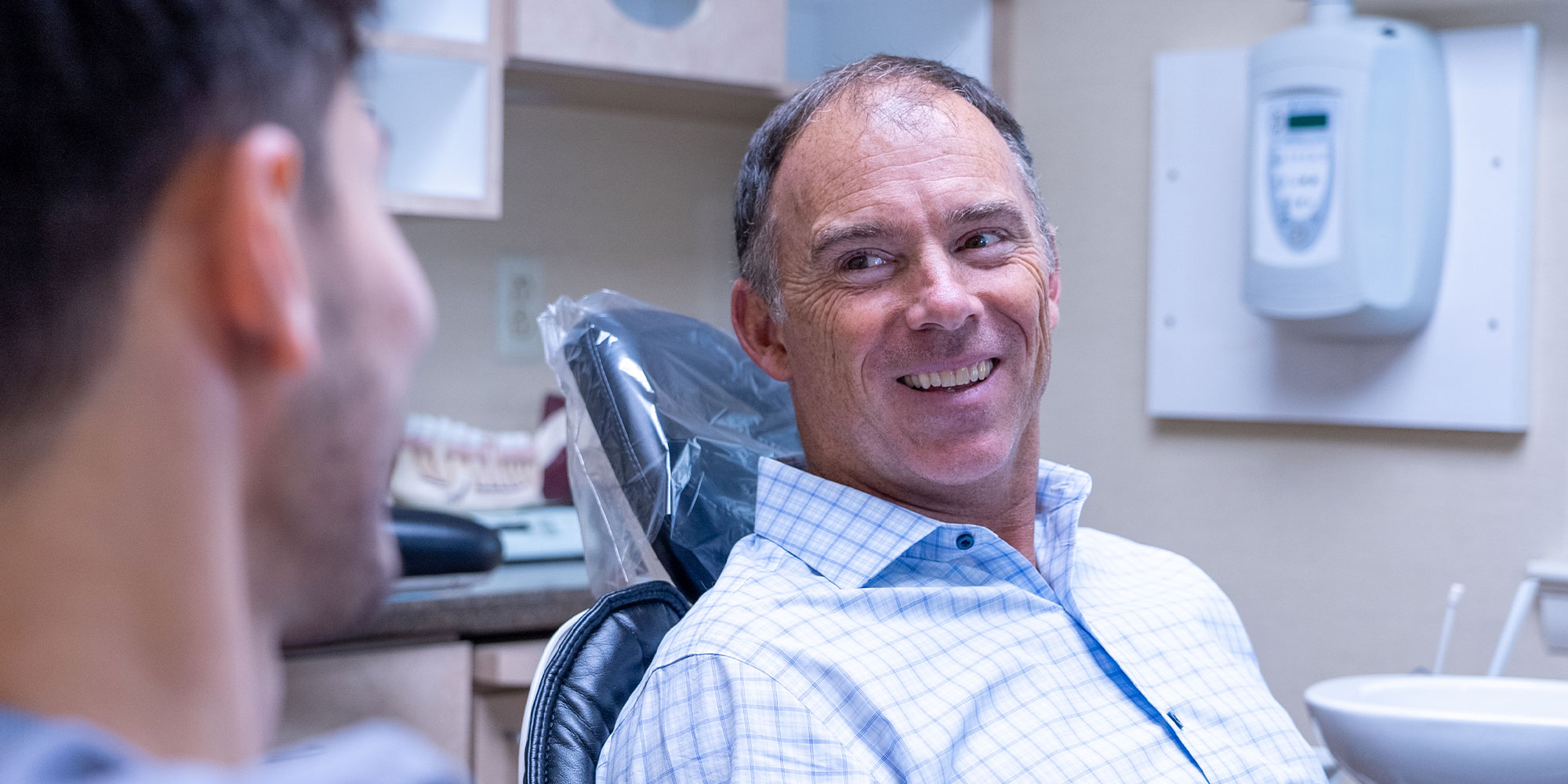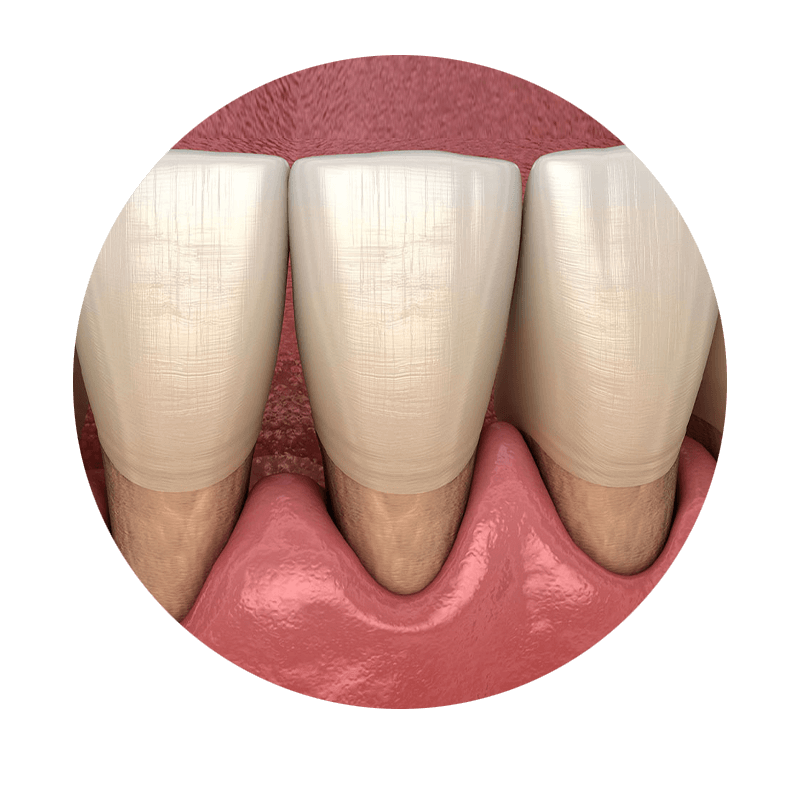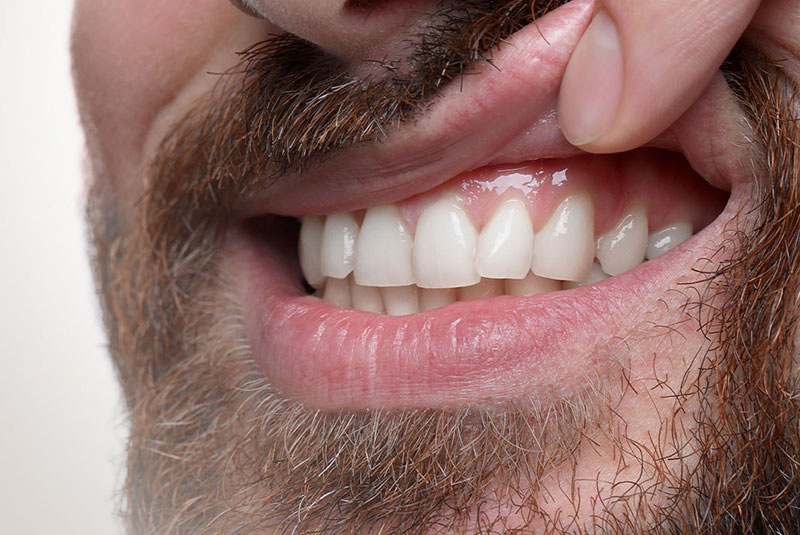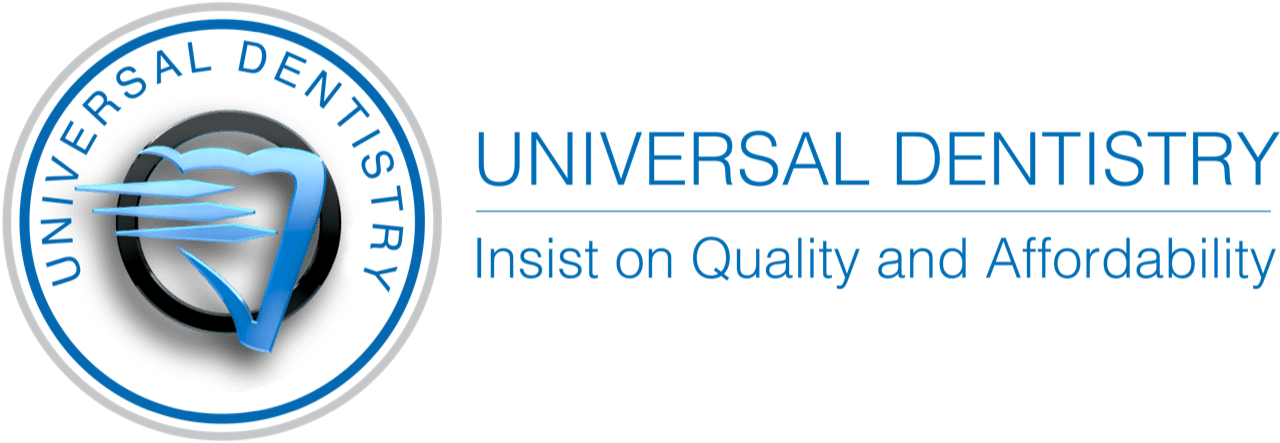
Periodontics - Philadelphia, PA
Don’t Let Gum Disease Steal Your Smile and Quality Of Life
Take Control of Your Health with Timely Gum Disease Treatment
Healthy gum tissue supports your teeth and jawbone while creating a barrier against harmful bacteria. Gum disease is caused by plaque, a sticky, colorless film that forms on your teeth, even when you sleep. An insufficient oral hygiene routine is the most common cause, while tobacco use, nutritional deficiencies, some prescription medications, hormonal imbalances, and genetics can increase your risk. When plaque isn’t adequately removed and builds up, it can harden and turn into tartar (calculus), causing inflammation, bleeding gums, and early gum disease called gingivitis.
In addition to being the number one cause of tooth loss in adults, periodontal disease can negatively impact your heart, lungs, cognition, and whole body health, as well as lead to pregnancy and diabetes complications. At Universal Dentistry, we’ve seen how gum disease robs people of their teeth and quality of life, and we don’t want to see this ever happen to you. With prompt periodontal treatment in Philadelphia, PA, our team can reverse gum disease and prevent more severe repercussions from wreaking havoc on your oral and general health!

The Warning Signs of Gum Disease
- Swollen, red, or tender gums
- Gums that bleed when brushing or flossing
- Gums that have pulled away from your teeth
- Pus between your teeth and gums
- Chronic bad breath (halitosis)
- A change in your bite or fit of partial dentures
- Loose teeth
Take the First Step to Better Health with Affordable Periodontics
The first step is a consultation at Universal Dentistry with our team to determine the presence and stage of periodontal disease. In addition to an oral exam, a tiny ruler called a probe is used to check for and measure periodontal pockets around your teeth. Healthy gums should only have a pocket depth of one to three millimeters.
The good news is that our team can stop gum disease from damaging your soft tissue and bone with minimally invasive periodontal treatment. We can often perform scalpel- and suture-free gum disease treatment in Philadelphia, PA with gentle yet effective dental lasers. With amazingly affordable periodontal treatment coupled with dental financing, we can help you permanently kick gum disease to the curb!

Restore Your Smile Foundation with the Healing Care it Deserves
This two-part deep cleaning is typically the first-line treatment to prevent gum disease from advancing to periodontitis. During scaling, we use an ultrasonic scaler to remove tartar and plaque from your tooth surfaces. This treatment targets the area below your gumline, along the tooth roots.
The second part involves smoothing rough root surfaces to prevent bacteria, plaque, and tartar from re-adhering underneath your gumline. This also decreases gum tissue inflammation while enhancing the ability of gum tissue to heal and reattach more firmly to your teeth.
Crown lengthening in Philadelphia, PA involves removing gum tissue, bone, or both to expose more of a tooth. If you have an excessive gingival display (a gummy smile), too much gum tissue is visible above your upper teeth when smiling.
In addition to cosmetic concerns, excessive gum tissue can trap food and bacteria under your gum line, making it harder to clean your teeth and increasing the risk of gum disease and tooth decay. In addition, crown lengthening may be necessary to expose more of the tooth surface to place a dental crown or bridge.
Gum recession can make your teeth look longer, more uneven, and generally not as attractive. However, exposure to areas usually covered by periodontal tissues can also increase your vulnerability to oral health problems, including root sensitivity, decay, and tooth loss. Gum grafting involves carefully placing a small amount of new tissue in an area with little to no existing gum tissue.
The donor tissue is most commonly taken from the roof of your mouth (palate) after the area is numbed for comfort. Then, the tissue is carefully stitched in place using a suturing material that’s finer than a single human hair. New blood vessels grow into the graft during the healing process and help it integrate with your surrounding tissue.
A frenectomy is a procedure designed to remove or loosen soft tissue that connects your gums and lips to your teeth. The labial frenum connects the inner part of your upper lip to your gums, while the lingual frenum connects the underside of your tongue to the floor of your mouth.
Although far less common, a restrictive buccal frenum that connects the inside of your cheek to your gums may also require periodontal treatment. If the labial frenum is too short, lip-tie surgery ensures proper mouth closure, preventing infant breastfeeding issues, gaps, open-mouth breathing, and potential gum recession. A lingual frenectomy (tongue tie surgery) is performed to loosen tongue movement enough to restore everyday speech and eating patterns, including breastfeeding.
You may require a gingivectomy if your gums have pulled away from your teeth and created deep periodontal pockets. The procedure involves removing and reshaping loose, diseased gum tissue to eliminate pockets between your teeth and gums.
This provides visibility and accessibility to remove harmful plaque and tartar and thoroughly smooth tooth roots. Doing so creates a favorable environment for gingival healing and restoration of your natural gumline contour.
LANAP (Laser-Assisted New Attachment Procedure) is FDA-approved to regenerate new bone, ligament, and cementum (layer covering tooth roots) lost to advanced gum disease. During this laser-based periodontal treatment, the PerioLase® MVP-7™ laser targets periodontal pockets to kill bacteria and the source of the inflammation without hurting or removing healthy tissue.
LANAP delivers consistent, reproducible, and regenerative results by combining the correct wavelength and pulse durations with an evidence-based technique. These gentler gum disease treatment benefits include less pain, postsurgical discomfort, and gum recession.
Using the PerioLase MVP-7 laser, failing or failing implants can often be saved with LAPIP (Laser-Assisted Peri-Implantitis Procedure). Peri-implantitis is a progressive oral infection and inflammatory condition affecting dental implants’ bone and soft tissue.
The laser is used in different settings and exposed to light to destroy periodontal pathogens and toxins. The goal is to reestablish a healthy environment for implants to heal and successfully reintegrate with your underlying bone.

